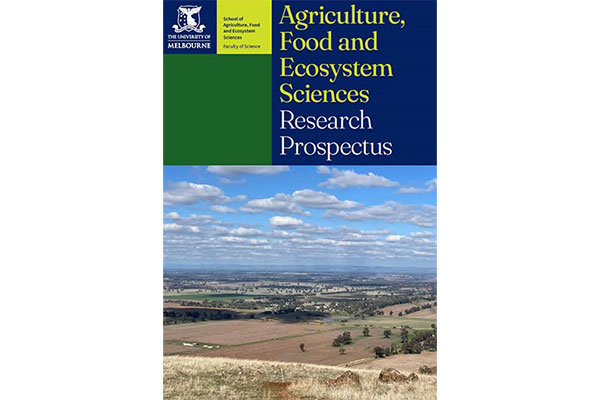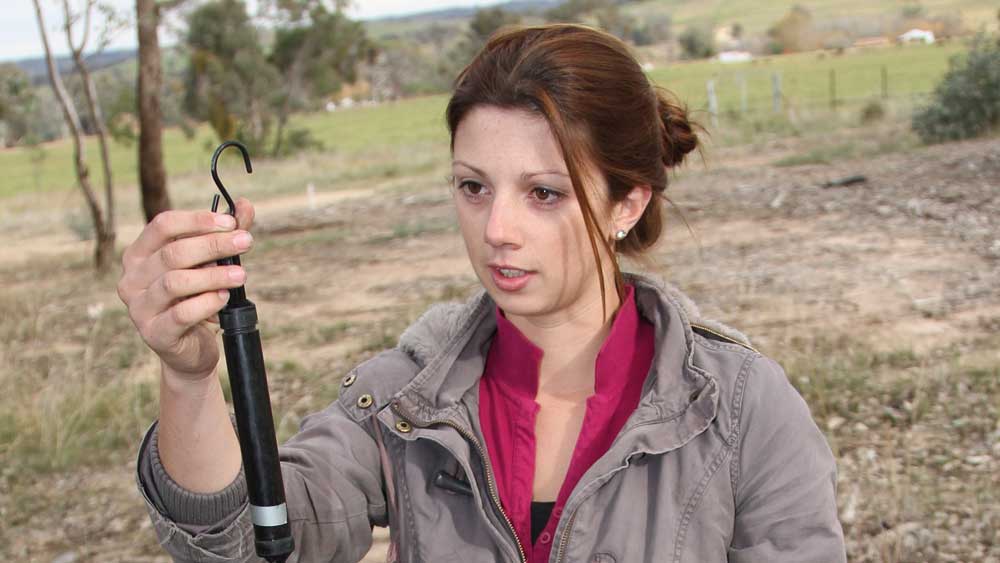Research in agriculture, food and ecosystem sciences
We develop high-quality, high-impact solutions to address a wide range of issues including climate change, food security, biodiversity conservation, sustainable forest management, invasive species, and environmentally and economically sustainable agricultural practices.
Our research themes
Researchers in our school conduct diverse and varied research in our state-of-the-art facilities. Our scientists are global leaders in their fields, finding solutions to the biggest issues we face today.
-
Agriculture
We focus on advancing agricultural practices and technologies to optimise animal production and enhance farm sustainability. This multidisciplinary approach integrates aspects of animal production, nutrition, genetics, health, and farm management.
-
Ecosystems
The ecosystems we study include forests and woodlands, rivers and wetlands, rural landscapes and urban centres. The processes we study range from catchment hydrology to fire events and recovery, from germination to natural succession, from ecosystem to atmosphere exchange to the energy balance.
-
Food
This multidisciplinary field explores how the consumption of various nutrients and bioactive compounds affects physiological functions and disease risk, and seeks to understand the intricate relationship between dietary patterns, food composition and human health.
-
Society
Solutions to environmental and sustainability challenges, be they at a global or local level, are best crafted with an understanding of the social, psychological, political and economic perspectives. Our research seeks to combine human, political and social science with environmental and agricultural sciences to address issues in urban, rural and wildland ecosystems and communities.
Learn more about our research
-
Research partnerships
Partnerships and collaborations play an essential role in our research capability and drive innovation, enrich student learning and empower research impact.
-
Research facilities
Linked with national and international research initiatives and accessible to the wider scientific community, our research is supported by state-of-the-art research infrastructure and facilities.
-
Research opportunities
Take your research further with our Honours, Masters and PhD research options. Find out what kinds of research projects you can join when you study with us.
Research prospectus
The School of Agriculture, Food and Ecosystem Sciences embraces a wide range of disciplines in the study of ecosystem processes and ecosystem management. Our staff and students work in urban, rural, and wildland settings in Australia and across the globe. Our school undertakes research to address environmental issues such as climate change, bushfires, urban sustainability, biodiversity conservation, sustainable forest management, invasive species and biosecurity threats.
Explore our research prospectus to find out what projects our leading academics are investigating.


PhDs and Masters by research
Do you see yourself developing new ways to integrate trees into urban environments? Trialling canopy bridges to connect mammal populations? How about working to solve global challenges in sustainable agricultural practice and food security?
If you're interested in any of these topics, and many more, studying for a PhD in our school could be the first step in an exciting research career.